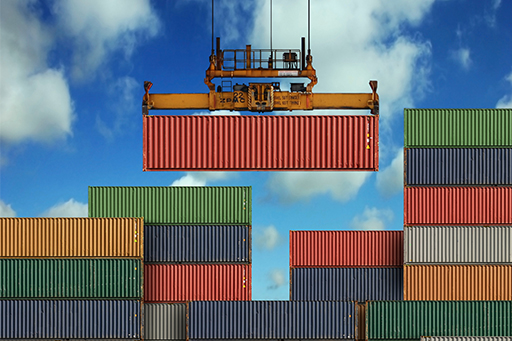In line with the shift towards digitalizing and modernizing public services, the much-anticipated Executive Regulations of the Customs Law have been enacted and provide the framework for an e-based customs system in Egypt. The primary goal of the new customs system is to provide a one-stop shop for customs clearances through digital platforms. This is further in line with the nationwide focus on encouraging investment in Egypt by facilitating easier and more efficient trade flow and reducing trade costs. Ultimately, the new customs system aims to solidify Egypt’s position in international trade.
On 31 August 2021, the Minister of Finance issued Decree No. 430 for the year 2021 enacting the Executive Regulations of the Customs Law (the “Executive Regulations”). The Executive Regulations comprehensively set out the main customs regime, procedures and applicable exemptions. One of the fundamental newly enacted mechanisms is the Advance Cargo Information System (the “ACI System”). Although the ACI System had been included in the Customs Law enacted in 2020 and piloted as of April 2021, the Minister of Finance has issued Decree No. 38 for the year 2021 declaring the ACI System mandatory, shortly after the enactment of the Executive Regulations.
The ACI System is the mechanism through which the prior clearance and payment of initial customs duties must be undertaken prior to the arrival of the goods.
Below are the key highlights of the ACI System:
The ACI System
The ACI System created the Nafeza Platform, an e-risk management application enabling importers to submit customs data and documents. The Nafeza Platform functions as a one-stop shop for importers, replacing the previous customs clearance system that required importers to engage with various entities or departments to obtain numerous approvals, permits and/or clearances.
Importers, owners of the goods or their representatives (the “Persons”) must e-file the data concerning the goods imported via the Nafeza Platform and complete the Advance Cargo Information Declaration (the “ACID”). The Persons may pay a percentage of the customs duty and settle the remaining amount upon the arrival of goods.
Similarly, the exporter or the manufacturer must also e-file the data and documents concerning the cargo on which the ACID is marked via the Nafeza Platform. Carriers must then include the ACID code in all shipping documents concerning the imported goods and e-file all the data, documents, and shipment lists via the Nafeza Platform.
Once all the relevant data and documents are submitted, the Nafeza Platform will electronically assess the risk of the cargo imported. During this exercise, the Customs Authority will assess the uniformity of the ACID of the imported goods and the data and documents provided by the carrier and exporter. Once confirmed, the Persons are granted a preliminary release permit.
Upon the arrival of goods, the Customs Authority will inspect the accuracy of the data and documents by undertaking a regulatory and import requirements test. Once the imported goods pass the said test, the remaining customs duties shall be paid. The permit generated via the Nafeza Platform will be appended with a “no objection to disburse” and the Persons may take possession of their imported goods.
On the other hand, and much like the system adopted in numerous jurisdictions, Egypt has opted for selecting CargoX as the electronic platform for exporters to e-file all the relevant data and documents concerning the goods they export. Such data and documents are made available to both the Customs Authority and the importers.
Sanctions for Non-Compliance
Failure to provide the ACID in the shipping documents will result in the Customs Authority refusing entry of the imported goods and requiring the carrier to re-ship them abroad at its own expense.
Additionally, upon inspection by the Customs Authority, should the quantities and type of the imported goods not correspond to the data provided via Nafeza, the Customs Authority will re-evaluate the customs duties and fees according to its new findings. The Customs Authority may further take legal action against the Persons in breach.
Implementation Challenges
Since the enactment of the mandatory ACI System, there have been growing concerns from the Persons regarding access to and use of the Nafeza Platform. There have been reports that the Nafeza Platform is often irresponsive, and the Persons are unable to access their ACIDs. The President of the Chamber of Importers indicated that the problems faced on the Nafeza Platform occurred due to the high volume of registered importers, which had ultimately caused the Platform to temporarily crash. These technical issues, if recurrent, may hinder the effectiveness of the ACI System.
Market Reaction
The Minister of Finance, Dr. Muhammed Maait welcomed the mandatory ACI System by indicating that it will facilitate dealings between importers, owners of goods or customs brokers with the Customs Authority with a view to reducing the time of customs release.
Dr. Maait further revealed that, since its mandatory enactment, the average time for customs clearance procedures at seaports are now 2.9 days, as opposed to the early 2021 average of 3.9 days.



